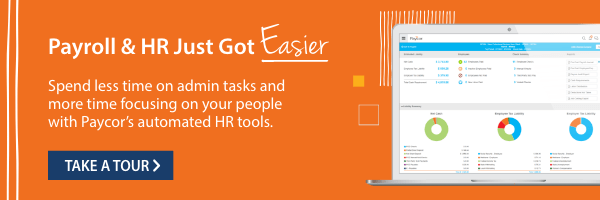A good middle manager is like a bridge. These unsung heroes take the grand vision of upper management and translate it into clear, specific tasks for other employees to perform. They play a vital role in shaping company culture, and ideally, they streamline communications both up and down the corporate ladder. Maybe most importantly, they lead the charge on talent development. But what do middle managers actually do? And how can HR empower them to be even better leaders?
The Many Hats of a Middle Manager
Middle managers need to be world-class communicators. They act as a conduit between upper- and lower-level team members, fostering collaboration and keeping everyone on the same page. Here’s what that looks like in practice:
Converting Ideas into To-Do Lists
First, an executive has a great idea. They run it by legal, talk to investors, look at the calendar, and decide they want to carry it out. Then, they talk to middle management and share the big-picture goals. So far, so good, right? From there, the C-suite may or may not have any role in the project. But you’d better believe the manager does.
They take the strategy and break it down into discrete tasks. They resource the project, deciding which employees will make it happen. They fit it into the overall calendar and estimate a timeline. They decide on a budget. Maybe they hire a new person or contract with a freelancer. Depending on your industry, company size, and the project itself, this list could go on and on. And after all this planning, they’ll still need to track the team’s progress and offer support along the way.
Managing Relationships
A great team is more than the sum of its parts. Leaders don’t just manage people; they manage relationships between those people. Like HR, middle managers are responsible for fostering a supportive environment. That includes the dirty work – like conflict resolution and responding to complaints. It also means knowing each employee’s strengths and giving them opportunities to grow.
Developing Talent
Middle managers play a crucial role in employee development. They’re in a perfect position to coach junior employees and act as professional mentors. They can also assign tasks that challenge employees or help them refine their skills.
This strategy can be a valuable part of any business plan. Did you know that 94% of employees would stay at a company longer if they had more career development opportunities (LinkedIn)? Upskilling drives retention, which cuts down on hiring costs. Best of all, highly skilled, loyal employees drive business results.
Troubleshooting Issues of all Shapes and Sizes
From changing lightbulbs to filling in for sick employees, middle managers are the first line of defense for minor setbacks. They’re responsible for solving issues before they snowball into major problems. When done effectively, this work can be invisible. That’s a double-edged sword. On the one hand, it saves the C-suite valuable time and emotional energy. On the other hand, it can mean that middle managers don’t get the recognition they deserve.
Hiring and Firing
Whether they work in HR or with HR, middle managers can function as hiring managers for their departments. As close as they are to the team, they have a deep understanding of each person’s performance. They know firsthand which employees aren’t working out, and they can identify skill gaps better than anyone. Whenever it’s time to let someone go or bring on a new team member, middle managers should be involved in the process.
Shaping the Employee Experience
The impact of middle managers goes far beyond daily tasks. Along with HR, they set the tone for the employee experience. Think about it: a great boss can make you feel valued and supported, while a bad one might just be the main reason you quit. This directly impacts employee engagement, retention, and ultimately, the company’s bottom line.
These metrics are more connected than you might think. Managers account for 70% of the variance in employee engagement (Gallup). And according to one study, highly engaged teams are 21% more profitable (Forbes). When middle managers keep frontline workers happy, everyone can see the results – including the C-suite.

Leaders Make All the Difference
The COR Leadership Framework is built upon decades of research indicating that the most effective leaders focus on intentionally coaching their employees towards constant improvement, optimize the performance of their employees and team to meet organizational goals, and recognize and reward their employees appropriately to retain top talent.
The Challenges of Middle Management
While middle managers can make or break a business, they face some serious challenges. Some of these issues are invisible to upper management and frontline employees – and sometimes, that’s as it should be. But HR, at least, should know what middle managers are dealing with:
- Caught in the Middle: Middle management can feel like a constant game of tug-of-war. And let’s be honest, the rope almost never wins that game. Upper management expects them to follow a certain strategy, but frontline workers have their opinions – and capacities. When goals are misaligned, or resources are scarce, middle managers are expected to untangle the problem. That’s a lot of pressure.
- Burnout and Overload: More than half of managers experience burnout (Harvard Business Review). Maybe it’s because they wear so many hats, trying to satisfy coworkers with conflicting priorities. Or maybe it’s just because they have so much to do. Regardless, these employees need more support to do their jobs sustainably.
- A Lack of Training: Many managers don’t have any formal leadership training (Forbes). Without proper training, they’re learning new skills on the fly, trying to keep up with industry best practices. They might struggle with tasks like delegation, conflict resolution, or effective scheduling. All these skills can be taught – if a person has the time, dedication, and resources they need to learn.
How HR Can Empower Middle Managers
To succeed, middle managers need support. Giving them the right tools not only empowers them; it also empowers their teams of frontline workers, boosting morale and productivity throughout the company. So how can HR help bridge the gap?
- Gather Data: You have to define “success” before you can achieve it. HR should work with upper management to identify key organizational goals. These could be anything from revenue to employee engagement scores – but they should be clear and measurable. Then, make an action plan to help middle managers work toward your north star.
- Invest in Leadership Development: Leadership training isn’t one-size-fits-all. HR can support all kinds of middle managers with responsive, dynamic training programs. Tools like Paycor Paths encourage leaders to set personal goals, learn on their own schedules, and put their new skills into practice at work.
- Foster a Culture of Feedback: Middle managers often get caught in a feedback loop – getting direction from above and trying to translate it for their teams. It can seem like most of their day is spent relaying information back and forth. HR can empower them by establishing a company-wide framework for giving and receiving feedback. This has the bonus of fostering psychological safety, which boosts employee satisfaction and engagement.
Finding Balance in the Middle
When you invest in middle management, you create a domino effect of positive change. These leaders have a huge impact on every level of corporate culture. Empowered middle managers bring great new ideas to upper management, and they foster frontline engagement and job satisfaction. That’s a recipe for productivity, employee retention, and financial growth.
Ready to take the next step? Explore Paycor’s HCM solution – a comprehensive suite of tools that empowers leaders at every level.










